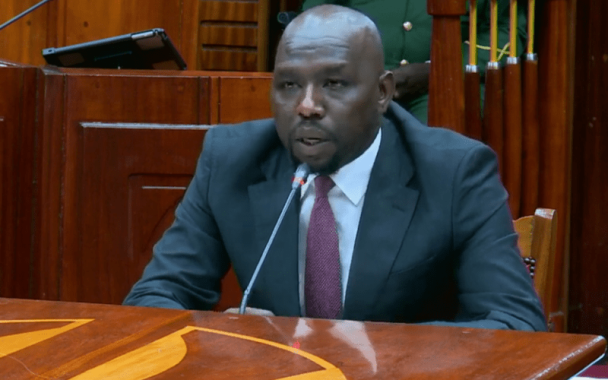A Nairobi court has freed civic tech activist Rose Njeri after declaring the charges against her legally flawed. Magistrate Geoffrey Onsarigo ruled that the case failed to meet the basic threshold of a valid criminal offence.
Police arrested Njeri on May 30, 2025, during a raid at her home. They accused her of “unauthorised interference with a computer system” under Section 16 of the Computer Misuse and Cybercrimes Act, 2018. The charge stemmed from her development of an online platform that allowed Kenyans to send emails to Parliament’s Finance Committee regarding the Finance Bill 2025.
However, the court dismissed the case on Friday, citing constitutional concerns.
“In light of the same statutes, I hereby refuse to admit the two counts of charges against the suspect,” Magistrate Onsarigo stated. “She is hereby discharged under Section 890(5) of the Constitution that requires disclosure of the offence.”
He explained that the law demands clarity in criminal charges. In his view, the accusations against Njeri did not show how her actions amounted to a crime.
Earlier, the court had released her on a KSh 100,000 personal bond. Her legal team, led by Kalonzo Musyoka, former Chief Justice David Maraga, and Eric Theuri, had called the charges baseless. They argued that the government targeted Njeri simply for enabling civic participation.
During the court session, Theuri strongly defended her actions.
“Your honour, we fail to understand how to respond to the charge since the email used originated from the government, and that means any person who sent an email to the same is a victim,” he said.
He clarified that Parliament had created the email to collect public views on the Finance Bill. According to him, Njeri only built a tool that helped people use that public channel.
“The Njeri responded to the government as it was the bottom line when the Parliament created the email,” he added.
The defence also questioned the practicality of advising her on how to plead.
“The Njeri used the email for the purpose it was created for, to the contrary that she violated the constitution, and they failed to understand how to advise the suspect either to plead guilty to the charges or not,” Theuri said.
Legal experts and civil rights organisations have praised the ruling. They said the court protected the right to expression and civic engagement. Many warned that using cybercrime laws to target activists could suppress democratic participation.
Njeri’s case has now become a symbol of digital resistance and public empowerment. Although the charges are gone, the questions around the government’s intent still linger.
In the end, her case sent a clear message: civic tech and digital activism remain protected under Kenya’s Constitution. The courtroom may have gone silent, but the public conversation has only just begun.






